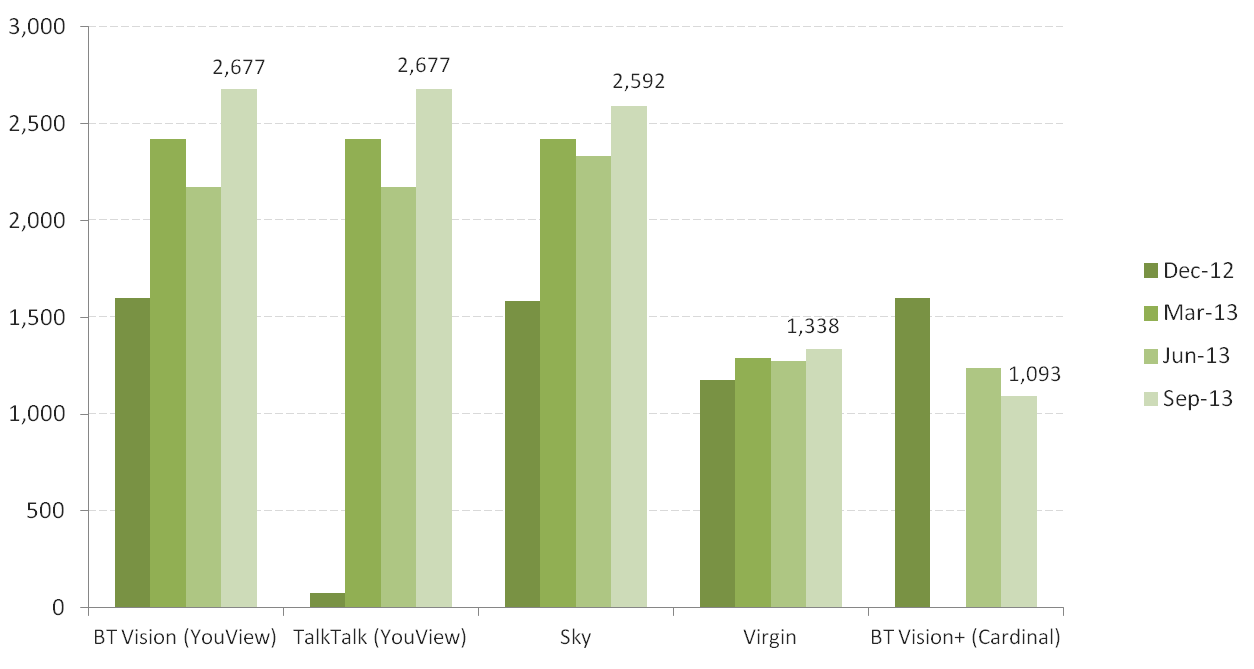This week, Decipher released the latest figures from Mediabug Wave 6, our bi-annual media consumption tracker. The findings paint a clear picture of growth in video on demand (VOD) viewing, particularly amongst older age groups, and fuelled in part by an increased accessibility to get video on demand services such as Netflix, BBC iPlayer, and Now TV to the TV screen.
The high value placed on VOD accessibility to TV screens is no state secret, however what is interesting to track is the changing ways in which viewers are choosing to do so. Whilst VOD via Pay TV set top boxes has been around for quite a number of years, it is growth in consumption through ‘Over The Top’ (OTT) devices that has caught our eye. From weighing up Mediabug data with industry news, I think a battle worth watching will be between Smart TV’s and Google Chromecast: two slightly different ways of watching video on demand on your TV. more “Will Chromecast be significant in the UK?”

